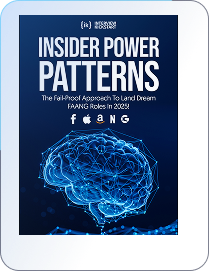Ruby on Rails interview questions will help you ace your Ruby on Rails programmer interview. If you are interviewing for a position where you will have to work on the web application framework, Ruby on Rails, you must prepare for the most anticipated questions.
Ruby is widely used by several top companies such as Twitter, Airbnb, Hulu, Netflix, GitHub, Bloomberg, and many more. Ninety percent of Ruby web applications are written using Rails. You must prepare vital concepts such as class hierarchies, encapsulation, inheritance, and polymorphism, as well as advanced topics such as multithreading and deploying your Rails app.
If you’re a software engineer, coding engineer, software developer, engineering manager, or tech lead preparing for tech interviews, check out our technical interview checklist, interview questions page, and salary negotiation e-book to get interview-ready!
Having trained over 10,000 software engineers, we know what it takes to crack the toughest tech interviews. Our alums consistently land offers from FAANG+ companies. The highest ever offer received by an IK alum is a whopping $1.267 Million!
At IK, you get the unique opportunity to learn from expert instructors who are hiring managers and tech leads at Google, Facebook, Apple, and other top Silicon Valley tech companies.
Know what kind of Ruby on rails interview questions are asked in Coding interviews for preparing your next coding interviews. Register for our Free Webinar to learn how to crack FAANG companies’ Interviews. Sign up for our FREE Webinar.
Throughout this article, we’ll look at interview questions and answers you can expect to be asked during a programmer interview at Ruby on Rails. We’ll cover:
Rails is amongst the top backend frameworks for the web, and some of the world’s biggest brands, such as Airbnb and Spotify, choose this framework. Most companies choose Ruby on Rails because of its libraries, user-friendly code, well-controlled framework, and frontend and backend solutions that increase developers’ efficiency.
Here are Ruby on Rails interview questions that will help you brush up on vital topics.
This is one of the frequently asked Ruby on Rails interview questions that checks your insight into various features of Rails. The following features makes Rails a good framework:
ORM stands for Object Relationship Model (ORM) in Rails. It indicates that classes are mapped to the table in the database, while objects are directly mapped to the rows in the table.
While both modules and classes use MixedCase and do not have an underscore, the key differences between the two are:

This is one of the most common Ruby on Rails interview questions to gauge your understanding of the features of Ruby on Rails. The variables are as follows:
The following command allows you to create a controller for the subject.
C:rubylibrary> ruby script/generate controller subject.
The controller is the logical center of the application in Rails. It enables interaction between the views, users, and the model. It routes external requests to internal actions and handles URLs. The controller in Rails regulates helper modules and sessions.
Rails engine is one of the vital topics for Ruby on Rails interview questions. In Rails, the engines work as miniature applications providing functionality to their host applications. A Rails application serves as a supercharged engine. Rails engine enables you to wrap a specific Rails application and share it with other applications or within a larger packaged application.
In Ruby, mixin offers an alternative to multiple inheritance. You can use a mixin to import modules inside another class.
In Rails routes, mount serves the equivalent of a Unix mount and is mostly used for Rails engines. It tells the application that another app exists in that specific location.
As a Ruby programmer, this is one of the commonly asked Ruby on Rails interview questions. The interviewer asks this question to ensure your knowledge of freeing up memory mechanisms.
Garbage collection has the following roles in Ruby on Rails:
You must answer this Ruby on Rails question carefully as the interviewer checks your capability to protect the applications from hackers.
CSRF stands for Cross-Site Request Forgery (CSRF). It is a form of hacking attack where the hacker submits a page request to another website on your behalf. This process can lead to damage or reveal sensitive data.
You can protect any application from CSRF attacks by adding the “protect_from_forgery” command to your Application Controller. This causes Rails to require a CSRF token to process the request.
Migration in Rails enables Ruby to make changes to the database schema and allows you to use a VCS (version control system) to leave things synchronized with the actual code.
Rails migration is capable of the following activities:
You can use the following Rails code to create a migration command:
C:rubyapplication>ruby script/generate migration table_name.
If you are an experienced Ruby programmer, you should be prepared for advanced Ruby on Rails interview questions. To ace your tech interview, you must practice the following important Ruby on Rails interview questions with answers.
You can easily submit an Ajax request in Rails. It initiates an Ajax operation as follows:
Rake is a Ruby utility that substitutes the Unix utility “make.” It is the Ruby make. Rake uses a “Rakefile” and “.rake files” to create a list of tasks. You can use Rake for normal administration tasks such as migrating the database through scripts or loading a schema into the database in Rails.
Ruby’s core library has a Hash class that returns value by using a standard “= =” comparison on the keys. The stored value for a symbol key cannot be retrieved with the equivalent string. Contrastingly, the HashWithIndifferent treats both the symbol and string keys equivalent.
Rails observers are similar to the callback, but they are used when the method is not directly associated with the object lifecycle. The observer has a longer life and can be attached or detached as required. For instance, you can use it to display values from a model in the UI and update models from user input.
Callbacks are methods in Rails that you can call at certain moments of an object’s lifecycle. You can call it when an object is validated, updated, created, or deleted. This is short-lived. For instance, you can run a thread and give a callback when the thread terminates.
This is one of the most frequently asked Ruby on Rails interview questions for experienced candidates. The following table enumerates the differences between the two:

Polymorphic association in Ruby on Rails allows an ActiveRecord object to connect with Multiple ActiveRecord objects.
For example, a social site where users can comment on videos, photos, links, status updates, and more is possible with the polymorphic association. Without polymorphic association, you would have to create an individual comment such as photos_comments, status_comment, and so on.
Rails allows meta-programming, and it gets efficient with Ruby. Meta-programming is a useful concept in Rails wherein your application creates functions or methods, or classes while it is running and can dynamically call them as well.
An example of meta-programming in action in Rails is with the route helpers. Using meta-programming, you can ask your code questions about itself during runtime, and this allows you to accomplish tasks comparatively quicker than in another language.
Deployment-related Ruby on Rails interview questions often form an integral part of coding interviews.
Capistrano is an ideal tool for deploying applications using deployment scripts. There are multiple tools or frameworks to minimize time, and the “cap production deploy†command is one of them. It makes everything instead of repeating the whole process on each deployment. Some key features of Capistrano are:
In addition to the list of interview questions mentioned above, here are a few more coding interview questions that you may be asked during your interview:
You can also download the Ruby on Rails interview questions and answers pdf here.
1. How do I prepare for Ruby on Rails interview questions?
You must practice your Ruby on Rails interview questions and answers to prepare well for your next interview. These will give you an idea of the interview questions that you might get asked.
If you are applying for backend Ruby developer, then you must thoroughly prepare Ruby on Rails coding interview questions. Top companies use coding challenges to test your skills in the interview. Mock interviews can also help you boost confidence and get familiar with the interview setting.
2. Are Ruby on Rails interview questions important for backend programmers?
If you are seeking a backend programmer position in Netflix, Spotify, Facebook, or any other tech company that uses Ruby, then Ruby on Rails interview questions are extremely important for you. These companies largely depend on the Rails framework for a major part of the infrastructure, including microservices and internal security applications.
3. Does Netflix use Ruby on Rails?
If this is asked as a Ruby on Rails interview question, you should know that Netflix utilizes Rails at the initial period of its streaming platform development. Presently, it depends on Ruby on Rails for a major part of the infrastructure, including microservices and internal security applications.
4. Is Ruby on Rails in demand?
Yes. In March 2022, there were over 12,000 Ruby on Rails job openings in the US (LinkedIn.com). The job market is expected to grow 13% by 2028. (zippia.com)
5. What is a Ruby on Rails developer?
Ruby on Rails developers are software engineers who use the Ruby on Rails Framework to write, develop, test, and implement software and applications.
IK’s preparation strategy has helped thousands of software engineers and software developers land their dream jobs. You, too, can nail your next coding interview with Interview Kickstart.
We offer interview preparation courses that are designed and taught by FAANG+ tech leads and hiring managers. With such a cracking team of instructors, Interview Kickstart is a powerhouse of expert knowledge and guidance on how to nail tech interviews.
Sign up for our FREE webinar to uplevel your career!
Attend our free webinar to amp up your career and get the salary you deserve.

693+ FAANG insiders created a system so you don’t have to guess anymore!

100% Free — No credit card needed.

Time Zone:






Get your enrollment process started by registering for a Pre-enrollment Webinar with one of our Founders.

The 11 Neural “Power Patterns” For Solving Any FAANG Interview Problem 12.5X Faster Than 99.8% OF Applicants
The 2 “Magic Questions” That Reveal Whether You’re Good Enough To Receive A Lucrative Big Tech Offer
The “Instant Income Multiplier” That 2-3X’s Your Current Tech Salary

The 11 Neural “Power Patterns” For Solving Any FAANG Interview Problem 12.5X Faster Than 99.8% OF Applicants
The 2 “Magic Questions” That Reveal Whether You’re Good Enough To Receive A Lucrative Big Tech Offer
The “Instant Income Multiplier” That 2-3X’s Your Current Tech Salary
Just drop your name and email so we can send your Power Patterns PDF straight to your inbox. No Spam!
By sharing your contact details, you agree to our privacy policy.
Time Zone: Asia/Dhaka

We’ve sent the Power Patterns PDF to your inbox — it should arrive in the next 30 seconds.
📩 Can’t find it? Check your promotions or spam folder — and mark us as safe so you don’t miss future insights.
We’re hosting a private session where FAANG insiders walk through how they actually use these Power Patterns to crack interviews — and what sets top performers apart.
🎯 If you liked the PDF, you’ll love what we’re sharing next.
Time Zone:

